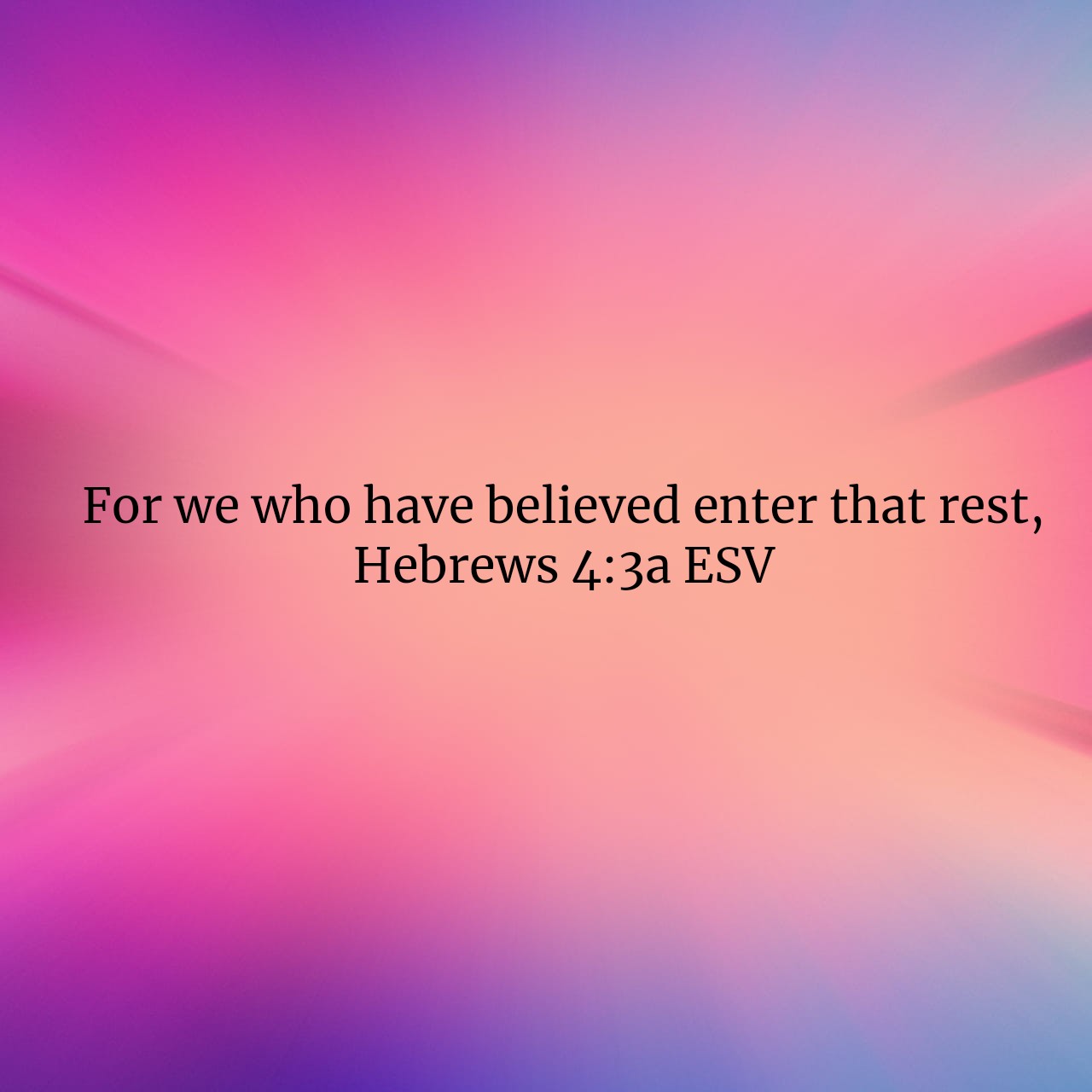Devotional 11 June 2025

The rest of God is not what we might first imagine. It is not spiritual idleness, nor is it a call to retreat from the work of the Kingdom. In fact, God’s rest is something deeper, more positional than passive, more settled than static. When the author of Hebrews speaks of entering into God’s rest, he points not to inactivity but to completion.
Genesis 2:2 says, “And on the seventh day God finished his work that he had done, and he rested on the seventh day…” Yet Scripture repeatedly affirms that God has not been inactive since then. Jesus Himself says, “My Father is working until now, and I am working” (John 5:17). God did not move on to new acts of creation, nor did He cease sustaining the universe. Colossians 1:17 tells us that “in Him all things hold together.”
In the same way, Christ is said to be seated at the right hand of the Father (Hebrews 1:3), signifying the completion of His atoning work on the Cross. But seated does not mean silent. Hebrews 7:25 assures us that Jesus “always lives to make intercession” for His people. Like a magnet that rests unmoved but emanates force, Jesus’ finished work exerts eternal influence. His throne is not a place of disengagement, but of reign.
This rest is not about ceasing all effort, but about ceasing to strive for salvation, to no longer live in fear of being lost in the wilderness of sin and judgment. In Christ, we no longer wander. Our rescue from Egypt has already happened. We are not trying to earn entrance into the promised land; we are invited to walk forward in it. Jesus’ invitation in Matthew 11:29 captures this beautifully: “Take my yoke upon you… and you will find rest for your souls.” The paradox is clear: we take on His yoke, but we also find rest. We enter a labor that flows from faith, not fear; from security, not anxiety.
Paul writes that “we are his workmanship, created in Christ Jesus for good works, which God prepared beforehand, that we should walk in them” (Ephesians 2:10). We are seated with Christ in heavenly places (Ephesians 2:6), yet while we are steadfast and immovable, we abound in the work of the Lord (1 Corinthians 15:58), knowing it is not in vain.
This is the tragedy of the Israelites in the wilderness: they were delivered, but they would not enter. Instead of stepping into the promise, they wandered, unresting. Their unbelief kept them from the position of peace and purpose that God offered (Hebrews 3:19). They labored in circles, not in fruitfulness.
To enter God’s rest is to live in alignment with His completed work, to walk by faith in what He has already done. It is not disengagement: it is direction. It is not withdrawal, it is rooted movement. We do not work for salvation, but from it. So the Christian life is not about trying to escape Egypt again, nor trying to earn our way to the Tree of Life. It is about dwelling in Christ, the Living Tree of Life: rooted, nourished, active, and restful all at once. Like the magnet, like the throne, like the seventh day: a rest that shapes everything around it.